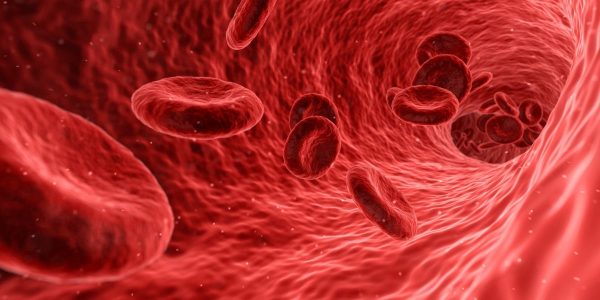What does winter mean to you? Dark nights, cold mornings, curling up in front of the TV? Popular images, but the reality is for many of us winter means illness. The misery of coughs, colds, sore throats and flu. But does it have to be that way? Exercise can and does strongly influence your body’s immune system. So how should we keep training to keep healthy this winter?
More...
Each day, a huge range of bacteria, viruses and other pathogens assault your body. All of these are capable of making you ill.
Fortunately, a well-honed human immune system is a natural masterpiece. It consists of an army of different cells, chemicals and signalling proteins. These all work together to keep the enemy at bay.
However, there are circumstances where even the most resilient immune system can struggle.
For example, the dry air associated with air conditioning and central heating systems can impair epithelial tissue.
This is the tissue lining the inside of the nose, throat and lungs. It's our first line of defence against bacteria and viruses. Consequently, there is a higher risk of colds, coughs and sore throats.
The same is true when exercising outdoors in cold conditions.
Likewise, poor nutrition, stress and tiredness can all contribute to reduced immunity.
How exercise helps the immune system

Exercise plays a major role in immunity – a role that can be both positive and negative.
In general terms, we know that those who exercise regularly tend to have higher levels of immunity. As a result, they are more resilient to infections and illnesses than their sedentary counterparts.
However, because of the complexity of the immune system, we are not entirely sure why this is the case.
One possible explanation is that exercise training favourably alters immune cell ratios. That is to say, by increasing the number of naïve T-cells in comparison to memory T-cells produced by the spleen.
When humans and animals age, the thymus gland shrinks, thus producing fewer naïve cells. This is one reason that older people have trouble responding to new environmental pathogens.
But studies on mice and exercise showed that in terms of immunity, vigorous exercise turned old mice into young mice.
Whatever the reason, the take-home message is that exercise is good for your immune system.
Post-exercise immune suppression
There is a flip side, however.
Ever come down with an infection or illness after a particularly strenuous period of training or long hard endurance event?
You’ll probably be aware then of post-exercise immune suppression. This is where the immune system becomes temporarily depressed after heavy bouts of training. It's now a well-documented observation, both in athletes and general fitness enthusiasts.
Exercise it seems is good for immunity, except immediately after exercising!
Post-exercise immune depression following intense exertion depletes your immune system in a number of ways. Particularly by reducing certain types of protective immune cells, namely lymphocytes, B Cells and natural killer cells.
The net result is an increased incidence of infection, particularly URTIs (Upper Respiratory Tract Infections).
These include coughs, colds, sore throats, flu and chest infections. The causes are quite complex.
Studies show post-exercise immune suppression via immune cell depletion occurs mainly due to increased stress hormone secretion. For example adrenaline and cortisol during vigorous and prolonged exercise. These hormones have long been known to suppress immune function.
Fighting Back

The good news is the right nutritional strategy can go a long way to fighting post-exercise immune suppression. It can be a real problem, particularly in winter.
During the colder months, there are other predisposing factors that increase the risk of URTIs.
Your best weapon against post-exercise immune suppression? Carbohydrates
Those who exercise while consuming low carbohydrate intake experience a greater release of stress hormones during exercise. Stress hormones negatively affect and suppress your immune system.
Therefore, your immune system will be a little weaker after training.
When carbohydrate stores are low, vigorous exercise promotes catabolism. Catabolism is where body tissue (such as muscle) gets broken down in order to provide energy. It's associated with higher levels of circulating stress hormones such as adrenaline and cortisol.
Stress Response
High carbohydrate diets, on the other hand, produce a lower stress hormone response. This is associated with less post-exercise immune suppression. Research shows that feeding carbohydrate during exercise can further reduce stress hormone production.
This, in turn, seems to keep the immune system strong during and after your exercise session.
In one study, cyclists fed carbohydrate during a 2.5-hour ride showed no decrease in an important immune cell. They looked at cells known as interferon-g-positive T-lymphocytes. Moreover, the carbohydrate fed group showed no measurable drop in the amount of production of interferon-g.
Further studies confirm that preventing carbohydrate depletion helps to prevent post-exercise immune suppression. This is achieved by consuming a high carbohydrate diet.
Additionally, supplementing carbohydrate in drink form during prolonged or intense bouts of exercise.
The message is clear - eat a high carbohydrate diet if you want a strong immune system.
If you’re in heavy training make sure you take in extra carbohydrate during and after exercise.
Using Carbohydrate to Prevent post-exercise immune suppression
Ensure your everyday diet provides an ample supply of carbohydrate at all times.
Up to 60% of your daily calories might come from carbohydrates, depending on your training volume.
Consume unprocessed, wholegrain bread, pasta and cereals, rice, corn. Include all types of fruit and vegetables, beans, peas and lentils in your diet. This is important, even on days when you don’t train. It’s during these rest days where you can really top up depleted muscles and glycogen reserves.
Remember, your immune system is still doing its best to ward off infection on the days where you don't exercise.
Avoid low or reduced carbohydrate diets to help your immune system cope
For longer (over 90 minutes) or more intense training sessions, you can help reduce any post-exercise suppression of your immune system further.
Consume 500-1000mls of a 6% carbohydrate drink (around 60g carbohydrate per litre of water) each hour during training. This will keep your energy levels up, fight fatigue and provide your immune system with the extra support it needs.
If you have been overdoing it, have a read this Training and Recovery article to get your body (and your immune system) back fighting fit.

